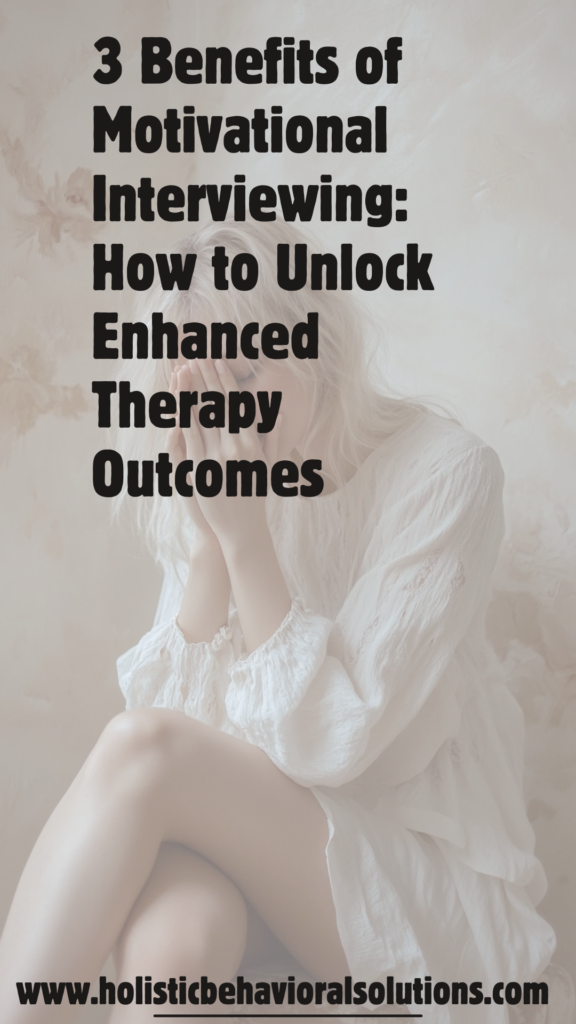
While occasional worry is a part of life, chronic and uncontrollable worry is the hallmark of Generalized Anxiety Disorder (GAD)—a condition that impacts millions and often includes challenges with assertiveness, boundary-setting, and excessive people-pleasing. Cognitive-Behavioral Therapy (CBT) remains a gold-standard treatment, but it doesn’t always address the interpersonal struggles that frequently accompany GAD. A recent study published in Journal of Psychotherapy Integration explores how Motivational Interviewing (MI) can be used alongside CBT to improve not just anxiety symptoms, but also long-term interpersonal outcomes.
What’s New? Combining MI with CBT
Researchers Heather J. Muir, Michael J. Constantino, Alice E. Coyne, Henny A. Westra, and Martin M. Antony studied the impact of integrating Motivational Interviewing with CBT (MI-CBT) in treating adults with GAD. Their goal: to evaluate whether this combined approach improves not just worry reduction, but also behaviors like Non assertiveness and over-accommodation, which often make relationships harder for those with GAD.
Study Design and Participant Snapshot
- Participants: 85 adults diagnosed with GAD
- Groups: Randomly assigned to CBT or MI-CBT
- Timeline: Participants were monitored throughout treatment and again at 12 months
- Focus Areas: Interpersonal functioning and therapeutic resistance
Key Findings: How MI Made a Difference
1. Greater Reduction in Over-Accommodation
Both groups improved during treatment, but those in the MI-CBT group showed a more significant decrease in over-accommodation—the tendency to excessively please or yield to others—over the long term.
2. A Trend Toward Improved Assertiveness
While not statistically conclusive, participants in the MI-CBT group also showed a greater trend toward reducing non assertiveness, suggesting that MI may support healthier boundary-setting and self-advocacy.
3. Lower Resistance = Better Outcomes
Perhaps the most meaningful finding: patients in the MI-CBT group showed lower mid-treatment resistance, and this was linked to better interpersonal functioning at the one-year follow-up. In short, addressing resistance early helped sustain progress.
Why This Matters: The Power of Engagement
Motivational Interviewing, originally developed to support clients in addiction recovery, focuses on reducing ambivalence and boosting motivation for change. For clients with GAD—who may be hesitant, self-doubting, or overly deferential—MI helps build buy-in, self-efficacy, and clarity. When integrated with CBT, it helps clients engage more meaningfully in therapy and better manage the relational patterns that fuel anxiety.
Looking Ahead: What Clinicians Should Know
This research affirms what many therapists already see in practice: resistance isn’t a barrier—it’s a signal. Addressing it directly through MI, rather than pushing through with standard techniques, can improve both symptom reduction and long-term relational health.
Future research should continue to explore:
- How MI can be tailored to diverse client populations
- Which components of MI are most effective in anxiety treatment
- Long-term outcomes across various therapeutic settings
Holistic Mental Health Support
Whether you’re navigating anxiety, rebuilding boundaries, or stepping into your assertive self, your mind and body need support. Explore our Holistic Supplement Store for wellness solutions that promote mental clarity, resilience, and emotional balance—essentials for any therapy journey.
Join Our Clinical Team
PS: Are you a culturally competent licensed clinician passionate about guiding others toward resilience? Our practice is growing, and we’re hiring in New Jersey! Check out our Careers page for current openings and join a team dedicated to fostering impactful, inclusive mental health support.

